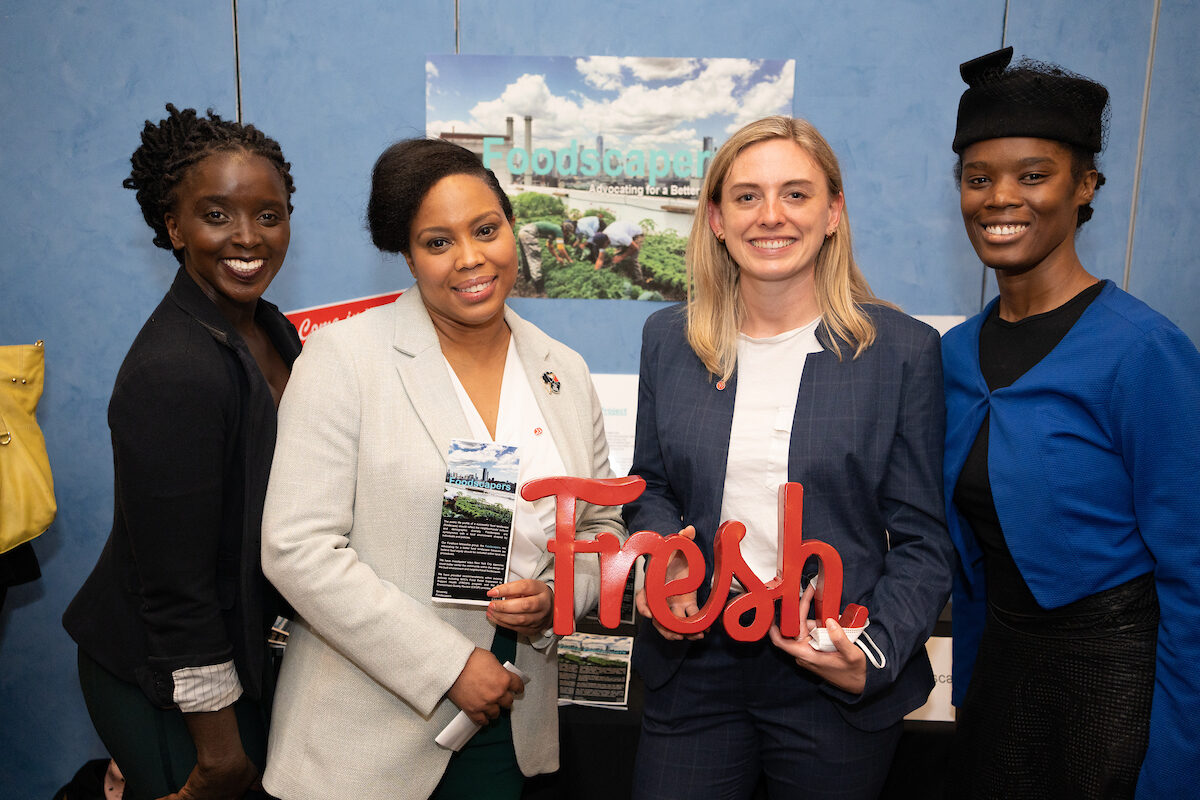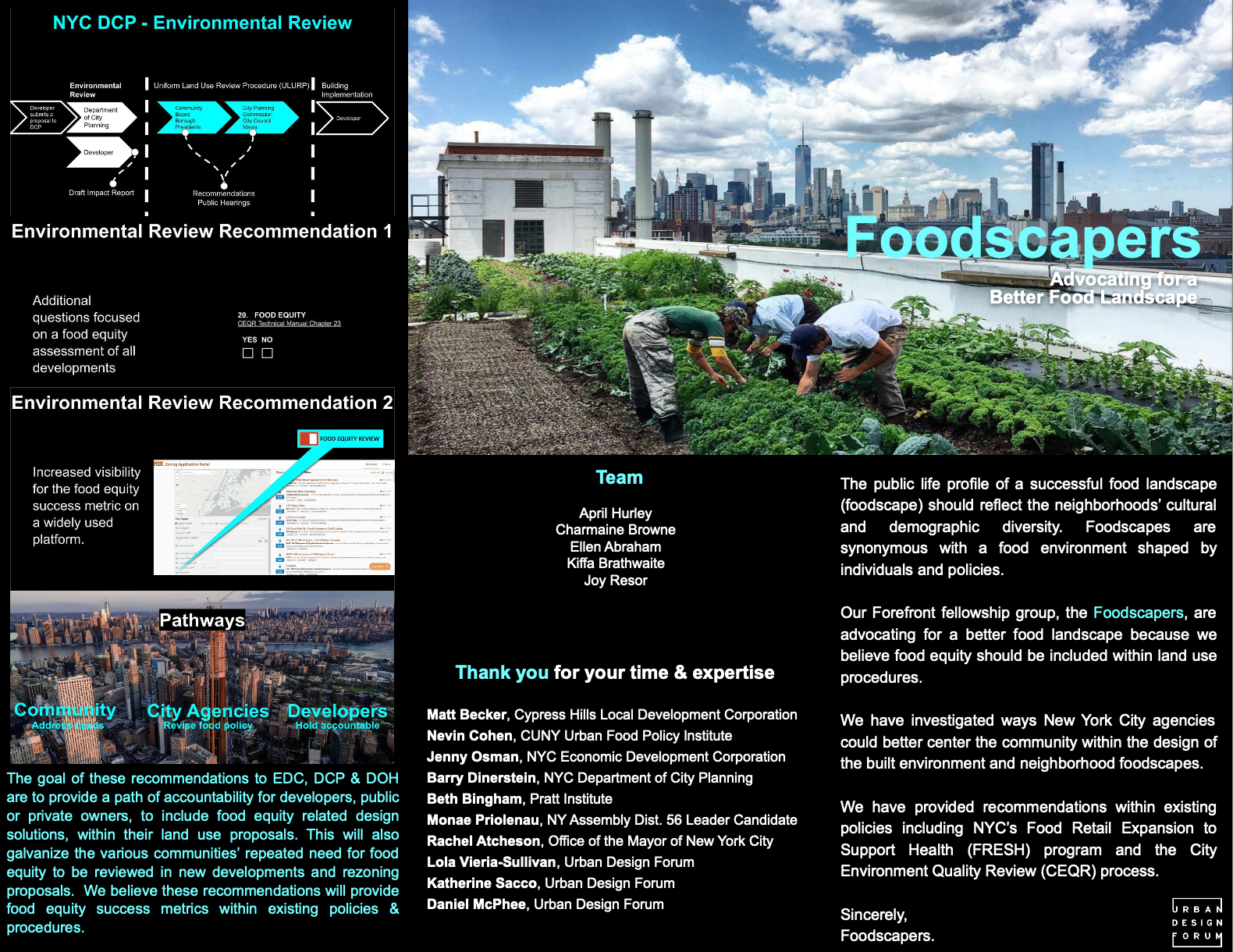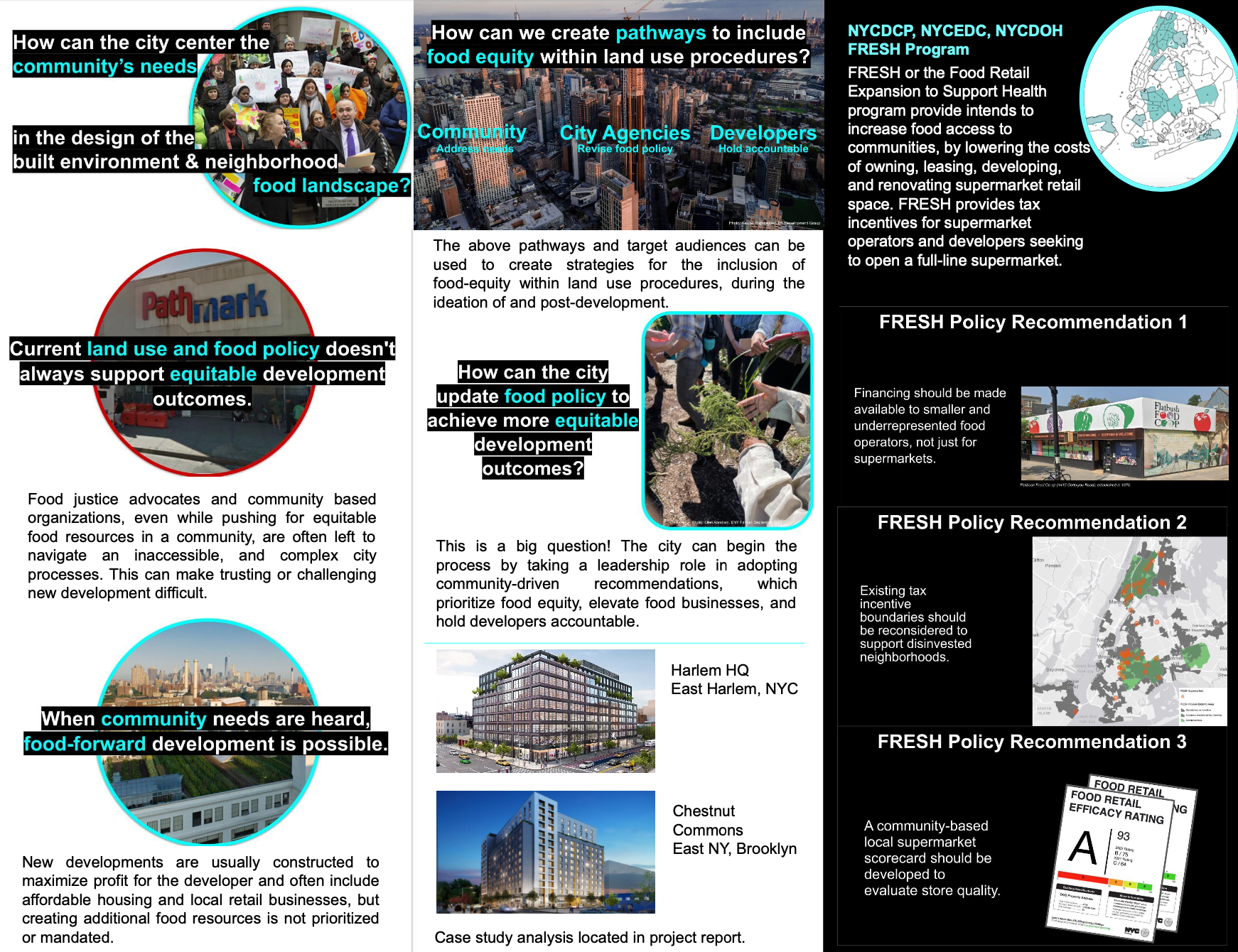
The Urban Design Forum’s 2021 Forefront Fellowship, Neighborhood Fare, explored how to foster food equity in every New York City neighborhood through the built environment. In partnership with the Department of City Planning and the Mayor’s Office of Food Policy, Fellows investigated how city government can strengthen community-based infrastructure to advance food equity.
This year, Fellows developed original projects that explore how to shape better food landscapes, decentralize food hubs, support immigrant-led food businesses, and create community among urban growers. Learn more about their projects here.
by Ellen Abraham, Kiffa Brathwaite, Charmaine Browne, April Hurley and Joy Resor
A successful food landscape — or foodscape — should reflect a neighborhood’s cultural and demographic diversity. We advocate for shaping better food landscapes across New York City by including food equity within land use procedures.
The built environment affects the ways in which people live, including how and where they acquire food, and land use policy can be used to shape better and more equitable food environments. We investigated ways New York City agencies could better center communities within the design of the built environment and neighborhood food landscape.
Zoning, land use, and urban development can have unintended impacts on neighborhood food equity. The city’s focus on nutrition and supermarket expansion has led to mixed results. It is very cumbersome for average New Yorkers to be active participants in determining the food landscape within their community. While developments going through public review are required to engage with community boards, many voices are still left out of that process. Community members are often distrustful of developers or the city when development is proposed as a result of historic and racist policies of disinvestment in Black and Brown communities. In order to rectify these policies, the city should ask how it can center the community’s needs in the design of the built environment and neighborhood food landscape in order to level the playing field and increase food equity in underserved neighborhoods.

We developed a series of recommendations that focus on expanding ways the city can invest in alternative models of food retail space, aid in entrepreneurship opportunities for underrepresented store operators, and reinforce the community’s stated goals within new developments. A variety of food resources in a neighborhood reflect new opportunities for fresh, culturally appropriate, and affordable food but can also provide job opportunities for residents, ways to build wealth, and can create places where communities flourish.

Our policy recommendations provide a path of accountability for city leaders and developers to achieve more equitable development outcomes and play an active role in the fight for food justice.